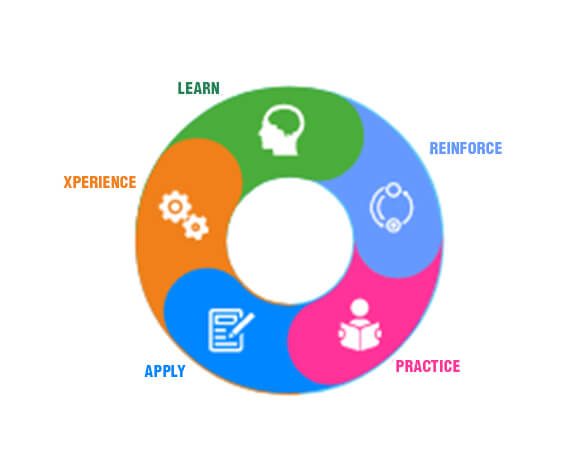Nature-based early childhood education is a growing trend in the early years of childhood education. It emphasises the importance of children spending more time connecting and learning in nature during their early years. This approach encourages children to learn through exploration and observation of natural surroundings which has been seen to have numerous benefits for their cognitive, physical, social and emotional development. In this blog, we will explore what nature-based early childhood education entails and explore its benefits.
Understanding Nature-Based Early Childhood Education
Research has proven that children learn best when they are allowed to self-explore the natural environment around them and engage with nature. This forms the basic tenet of nature-based education. In nature-based education, nature-based activities take place outdoors with a focus on activities such as hiking, cycling, stream hopping, fort building and many more.
Also Read: 8 Reasons Why Exploring Nature with Children is Important
Characteristics of Nature-Based Early Childhood Education
There are some key characteristics of nature-based early childhood education:
- Nature is the classroom:
- It is experiential and hands-on learning:
- Unstructured play-based learning:
- Involvement of local community:
- Integration with academic curriculum:
- Exploration-led learning:
Being in natural surroundings serves as the key learning space for children. Be it a forest, a park, a natural reserve, a garden or some body of water. Nature-based learning is encouraged in a space that engages and activates all their visual auditory and kinaesthetic senses.
Learning in nature exposes children to direct and real experiences. Activities such as walks, gardening, trekking, swimming, wildlife observations, and bird watching help children develop a deeper connection with nature as well as relate the learning to their curriculum.
Gardening and plant identification activities allow children to understand the process of growing food. Studying the natural habitat of plants and animals enables children to learn about biodiversity and ecosystems.
Nature-inspired arts and crafts activities spark creativity in children encouraging them to use natural materials. Sensory experiences in nature, such as feeling different textures or listening to bird songs, engage all the senses, promoting sensory development.
Unstructured play in nature enables children to explore, create and interact with nature in its various forms and seasons. This sparks their creative and imaginative skills, contributing to their social, and emotional well-being. Activities such as climbing trees, balancing on logs, running through farms and meadows, and jumping over streams teach them coordination, and balance and build their strength.
Nature-based education connects children to the local community such as farmers for their learning. Through activities including farm visits, nature walks and exploration, children can observe and learn about local flora and fauna. They develop an appreciation of the cultural traditions of the region as well.
Nature-based early childhood education incorporates activities that allow children to learn about science, maths, language, art, and more in integration with nature. Lessons are often designed around nature-focused themes, encouraging children to explore their environment, observe plants and animals, and understand ecological systems.
When children explore natural surroundings, they are given the freedom to choose their interests and be curiously engaged. Teachers then act as facilitators in their learning supporting their inquisitiveness and providing guidance when needed. There are no predetermined lesson plans but exploration-led learning outcomes that can vary across every student. This keeps children mentally active, motivated and engaged with learning.
Also Read: Nature conservation: Importance, benefits, effective ways to conserve nature
Benefits of Nature-Based Early Childhood Education
Nature-based activities are designed to give children a hands-on experience of the natural world. This learning approach promotes curiosity, fosters a sense of wonder, encourages exploration and discovery, and nurtures a deep connection with nature as a source of learning.
One of the main benefits of nature-based early childhood education is its contribution to their physical development. The fresh air, natural light, and open spaces in outdoor environments keep them fit and active which builds their overall health and immunity. Spending time in activities involving running, climbing, and jumping helps develop their gross motor skills and reduces their stress.
By engaging in nature-based activities, such as hiking and gardening, children develop cognitive abilities such as problem-solving and critical thinking skills. Exposure to nature also exposes them to real-world challenges which makes them flexible and more adaptable. They develop attention to detail along with strong observation skills making them more focused, creative and imaginative individuals.
As children learn to navigate the natural environment around them independently, they develop self-confidence. When done as a group, it encourages them to build positive social interactions and they learn to work together and collaborate to solve problems.
Nature-based activities such as gardening and caring for animals, make them empathetic, responsible and respectful towards nature and its needs.
Also Read: Benefits of Nature Based Learning
Implementing Nature-Based Early Childhood Education
Creating outdoor classrooms and natural play areas is one way to help children experience and implement nature-based education. Creating nature-inspired spaces requires including gardens, wooded areas, water features, and areas for imaginative play.
It is essential to also engage parents in nature-based activities through workshops and family events. Local trips to nearby parks and forest areas can provide additional support for nature-based learning opportunities.
Numerous nature-based early childhood education programs and nature-based schools have successfully implemented this approach and witnessed remarkable outcomes. For example, a forest kindergarten in a rural community observed children developing resilience, problem-solving skills, and an appreciation for nature.
However, implementing nature-based early childhood education may come with challenges, including concerns about safety and supervision, logistics and financial constraints. While these challenges can be addressed through careful planning and collaboration with local authorities, utilising community resources can help overcome financial barriers.
Also Read: Inspiring a paradigm shift in education with Nature Based Learning
Conclusion
Nature-based early childhood education is no doubt a holistic and transformative educational approach that nurtures children’s development in their early years. By integrating nature into early education, children develop cognitive, emotional, social, and physical skills that serve them well throughout their lives.
As parents, educators, and policymakers, it is our responsibility to embrace and support nature-based curricula and nature-based schools, providing future generations with the tools and experiences they need to become environmentally conscious, empathetic, and well-rounded individuals.
At EuroSchool we are committed to the outcome nature-based education creates. By integrating nature into the curriculum and providing meaningful experiences, EuroSchool prepares students to become environmentally conscious and responsible individuals who value and nurture the planet.










